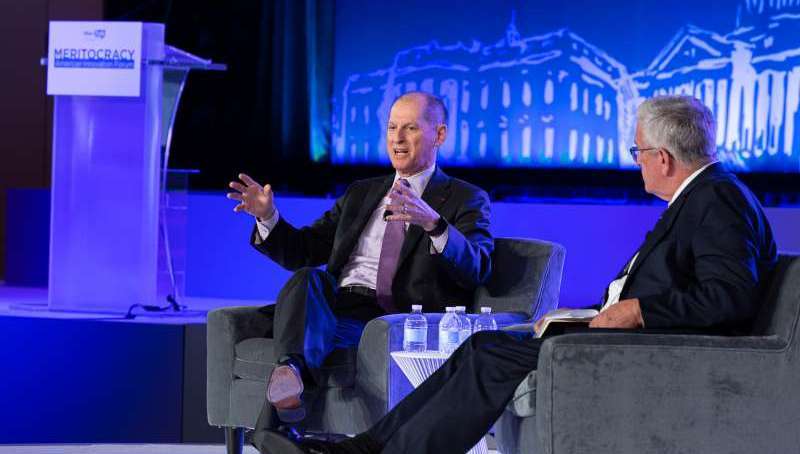
The Federal government and industry may see more innovation in emerging technologies with friendlier policies from the Trump administration, but misguided leadership could end up stifling progress, said Consumer Technology Association CEO Gary Shapiro.
Speaking at a GovExec event on Feb. 18, Shapiro said he believes friendlier policies toward AI innovation that are likely to be implemented by the Trump administration will boost AI and robotics development – which he said could end up bolstering government efficiency.
“It’s about robotics, new forms of mobility, generative AI, new ways of using health care to cut down dramatically on our health care costs,” said Shapiro in explaining areas that emerging technologies could transform.
Shapiro also said that past policies hindered the innovation needed to drive these advancements – particularly under the Biden administration – which he claimed discouraged investment in technology and startups.
“What’s great about the Trump administration is that they changed the Biden administration’s approach on this,” said Shapiro. “The Biden administration was anti-big companies buying small companies, investing in them, doing anything, and they did not like tech companies … it hurt investment, as did high interest rates.”
While the new administration could be friendlier toward innovation, Shapiro warned that the best technology recommendations are more likely to come from government employees, and not from outsiders such as those from the recently formed Department of Government Efficiency (DOGE) led by Elon Musk.
“We’re seeing fundamental change with the new administration – and quick change – and we’re seeing with a Congress that’s also very compliant and supportive of the president,” said Shapiro.
“I think the opportunity here for government employees is that they are the smartest people in terms of what they do and what they know and what they know can be fixed,” he said.
DOGE was established by President Trump who gave the organization the mission of modernizing the government and improving its efficiency – though those efforts to date have resulted in significant pushback amid tens of thousands of Federal employee firings and employees leaving their positions via resignation offers.
“Only government employees could figure out how to [modernize], not some people coming from outside – with all respect to Elon Musk and others – they’re just going to take the best ideas, or in a vacuum of ideas, they’ll create what they think is the best – which is probably the worst, because they’re probably wrong,” he continued.
Shapiro added that while DOGE may not have the answers, it could serve as a platform for government employees to voice ideas for improving efficiency.
“If you are expressing the ways of doing something better, including the use of artificial intelligence, which would save a lot of government reporting and allow freed up resources to do other things which would be more compelling and more interesting – that’s an opportunity there,” he explained.
DOGE also may help provide agencies with the push they need to modernize their technology which is important as many agencies continue to use legacy technology, Shapiro continued.
“I think to the extent that you know there’s an interaction between DOGE and others and say, here’s some opportunities to change some things that make our lives better in government and make us more effective at what we do, and let’s use technology,” he said.
